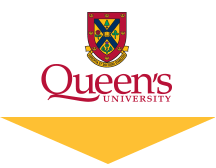This specific project explored ways to evaluate students on critical thinking, problem solving, written communication and lifelong learning. Additionally, the research team attempted to track student development of these skills over the course of a four-year program to illustrate how these skills progress.
Information on learning outcomes was collected in four ways: surveys, interviews, two standardized tests (the Collegiate Learning Assessment and the Critical Thinking Assessment Test) and rubrics adapted from the American Association of Colleges and Universities to score student work samples independently of course grading. The research team also worked with course instructors to try and bring together these two types of assessment — standardized tests and rubrics — in a unified manner.
Findings from the project include the following.
- The critical thinking, problem solving and communication skills of Queen’s students’ improved over the four years of their degree.
- Student motivation was a significant concern for standardized tests. In order for students to put effort in, the instructor needs to value the test, the content needs to be relevant, careful consideration should be given to scheduling, and results should be made available to students.
- Qualitative and quantitative feedback facilitated through departmental reports and debriefs prompted improvements to courses.
In accordance with the results from other LOAC projects, students tend to do better at demonstrating critical thinking and problem solving when these skills are specifically targeted (either through teaching or elicited in an assignment).
Materials and Outcomes
Throughout the course of this project, updates and final reports will be posted here.

